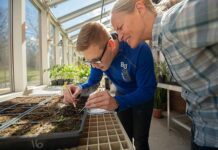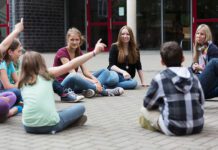Mark Matlock, executive director of Youth Specialties, wrote an incredible article in the May/June 2014 Youth Worker magazine about the two needs of the teenage brain. I found this article so fascinating and true. I love that youth ministry is not only heavily relying on neuroscience to inform our methodology, but neuroscience affirms why youth ministry matters and needs to exist!
In this post, I just wanted to briefly summarize Matlock’s article because I think it is so important for youth workers to learn about the teenage brain.
Matlock suggests that “their” brain needs:
Community and Confession.
The teenage brain really needs community. Dr. Dan, in his book The Developing Mind, affirms why community is hugely formative for teens. The teenage brain needs meaningful relationships in order to function properly when the teen reaches adulthood. The Institute for American Values reported that:
The presence or absence of a nurturing environment during childhood not only shapes a child’s psychological and emotional development but also alters brain development in ways that profoundly affect long-term health.
A nurturing environment must have safe, loving adults. Teens having deep relationships with adults validates that this environment is safe and nurturing. Matlock says it best:
Our youth gatherings are much more than social or teaching platforms. The community we help create actually heals the brain and satisfies its biological need for community.
The teenage brain really needs confession. The brain has two systems of knowing—(1) Explicit: recall information and (2) Implicit: emotional or gut instinct. When we tell our stories, these two systems work together as we reflect, process, and confess the good, bad and ugly of our past. The cool thing is that telling our stories actually heals the brain, especially in the context of safe relationships. Matlock comments that when James instructs us to confess our sins to one another, this is not only a spiritual discipline but fosters neurobiological healing.
__________________________________
How have you created an environment that ensures teens have real, authentic, safe relationships and a place to share their struggles?













